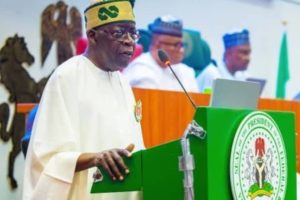The Nigerian National Petroleum Corporation (NNPC) has announced the successful resolution of its longstanding cash-call debt, amounting to $2.4 billion, owed to international oil companies (IOCs) operating within the country. This significant financial breakthrough, confirmed by NNPC’s Group Chief Executive Officer (GCEO) Mele Kyari, signifies a major step towards stabilizing the nation’s oil and gas sector.
According to Kyari, this achievement was made possible after the complete elimination of fuel subsidies, which had long impacted the corporation’s cash flow. By diverting resources from subsidy maintenance to debt settlement, NNPC has cleared its financial obligations, positioning itself to better support Nigeria’s energy sector. This debt clearance is expected to encourage further investment and collaboration with IOCs, fostering a more sustainable and transparent industry.
Impact of Fuel Subsidy Elimination on NNPC’s Financial Health
The eradication of Nigeria’s longstanding fuel subsidy played a pivotal role in enabling NNPC to achieve debt-free status. Kyari emphasized the strain that subsidy maintenance had placed on the corporation’s financial health, calling it a “major distraction” that drained essential resources. For years, NNPC was forced to allocate cash flows to support the subsidy, often resulting in defaults on its obligations to international partners.
With subsidies removed, NNPC has redirected its focus and resources to other critical areas, particularly debt resolution and infrastructure development. The corporation can now deploy its financial resources more strategically to boost the country’s energy sector sustainably. This development reflects the government’s commitment to improving fiscal discipline and ensuring a steady, independent revenue stream.
NNPC’s Strategy to Ensure Long-Term Financial Stability
Mele Kyari highlighted NNPC’s forward-looking approach to financial stability, emphasizing the importance of eliminating distractions that previously hindered the corporation’s cash flow. NNPC aims to sustain its debt-free position by focusing on the sector’s primary objectives: energy production, sustainability, and affordability. According to Kyari, maintaining a stable cash flow is essential to keep Nigeria’s energy industry competitive on the global stage.
Kyari’s vision aligns with the government’s broader economic strategy, which focuses on removing costly subsidies and fostering a market-driven energy sector. The debt clearance sets a precedent for effective financial management within the state-owned enterprise and is anticipated to improve its operational efficiency in the long term.
Plans to Bolster Nigeria’s Energy Infrastructure with CNG Stations
As part of its commitment to enhancing Nigeria’s energy infrastructure, NNPC has outlined plans to establish 12 Compressed Natural Gas (CNG) mother stations by the first quarter of 2025. Kyari confirmed that the stations would expand the availability of natural gas across the country, marking a significant shift towards cleaner energy solutions. This initiative aligns with NNPC’s broader goal of creating a robust energy market that supports domestic power generation.
The introduction of CNG mother stations is expected to provide an affordable alternative to petrol, which could ease the burden on Nigerian consumers affected by fuel subsidy removal. These stations will cater to the growing demand for CNG-powered vehicles, reduce greenhouse gas emissions, and contribute to a more sustainable energy landscape in Nigeria.
Development of Mini LNG Plant to Boost Energy Access
In addition to CNG stations, NNPC is set to build a mini Liquefied Natural Gas (LNG) plant to facilitate natural gas distribution across Nigeria. The plant will supply natural gas to the domestic market, ensuring the quality and reliability of CNG delivery. Kyari mentioned that this development would help meet the short-term energy needs of mini power plants, supporting various industries and communities across the country.
The LNG initiative is part of NNPC’s strategy to diversify Nigeria’s energy sources and promote natural gas as an accessible and reliable alternative. By expanding the availability of LNG, NNPC aims to reduce dependency on imported fuels and create a self-sustaining energy sector that can better serve Nigeria’s growing energy demands.
Future Outlook: Towards a Sustainable and Affordable Energy Sector
With these recent developments, NNPC is positioned to drive significant changes in Nigeria’s energy landscape. The debt clearance, removal of subsidies, and infrastructure improvements are all part of a larger strategy to create an energy sector that is both sustainable and affordable. By focusing on expanding natural gas facilities and eliminating past financial burdens, Nigerian National Petroleum Corporation is laying the groundwork for a stable and diversified energy sector.
These milestones underscore NNPC’s commitment to aligning with Nigeria’s economic goals. As Nigerian National Petroleum Corporation continues to invest in critical infrastructure and explore cleaner energy solutions, it is expected to play a pivotal role in supporting Nigeria’s transition to a more diversified and resilient energy economy, which ultimately benefits the entire nation.
Table of Contents
Discover more from OGM News NG
Subscribe to get the latest posts sent to your email.














